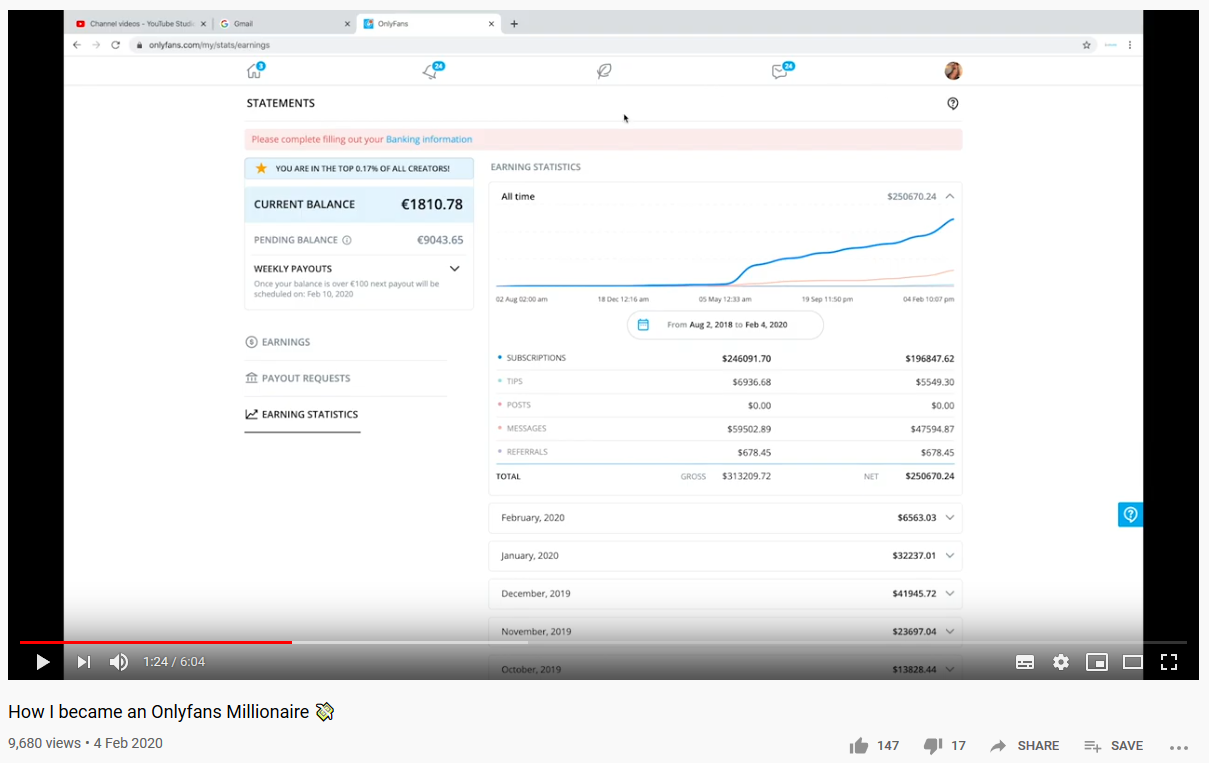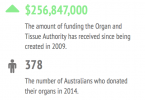What if all it took to make $12,000 a month was a webcam, an OnlyFans account and a small community of faithful, internet admirers with cash to spare?
Online sex work is booming in light of the COVID-19 pandemic, which has seen a flood new users race to sign up, hoping to be another Youtube success story detailing how they made thousands within their first week.
But the phenomenon is old news for some. Content subscription platforms have been a wildly popular avenue for sex workers to hustle online, well before everyone was cooped up at home and left to their own devices.
Mia Lange, a 24-year-old adult entertainer and full-service sex worker in Melbourne lost her job during the first round of lockdowns in March. Before the pandemic, she was working both online and in-person but was forced to transition completely online with no idea when she can return to brothel and escort work.
“Since my work has moved online, things have been pretty rough financially and mentally,” Mia says.
But Mia is not the only one who has had to find alternative sources of income and living in a digital age makes opportunities online seem endless. Subscription websites such as OnlyFans and Patreon have seen a deluge in user activity since March.
According to an article published by Huffington Post, subscription service OnlyFans has seen a dramatic influx in users, with the platform overseeing 170,000 new users daily and a mammoth 75 per cent increase in signups.
While many utilise the social media platform for selling a variety of content, the site has mainly reached notoriety as a medium for individuals to post pornographic content. An article by The New York Times goes as far as suggesting OnlyFans has “changed sex work forever”.
And it’s not surprising that so many are allured to the world of online sex work while a worldwide health crisis takes place outside. A quick Youtube search garners half a dozen results on tips and tricks from those who are keen to share their experiences. One YouTuber boasts about making $12 thousand dollars using the streaming platform while another,who goes by the name of Leo, dedicates a video to how he “became an Onlyfans millionaire”.
Fifteen seconds into the clip, however, Leo asserts that the title was merely clickbait material and that he has not become a millionaire. However, he has more than five thousand subscribers on OnlyFans, more than 116 thousand followers on Instagram and on the YouTube video he boasts of having earned more than US$250 thousand (around AUD$350 thousand) on OnlyFans since August 2018, with a clear upward trajectory since May 2019.

YouTube screen grab of Leo’s earning from Only Fans which shows a clear rise since May 2019. (Credit: The OnlyFans Bible)
But the reality of these subscription services is largely different from the ‘get rich quick’ premise so many seem to buy into. While many have attempted to make their luck online, it’s not as simple setting up a camera, taking a couple of photos and watching the money and subscribers rolling in.
“These activities don’t produce income streams overnight,” Lisa Dallimore, the spokesperson for Sex Work Law Reform Victoria, a peer-led, sex worker group lobbying for the full decriminalisation of sex work in Victoria, says.
According to Dallimore, the unprecedented nature of the pandemic has left many scrambling and unemployed, making online sex work look like an easy side gig.
“As with other forms of sex work, it takes time to build up a regular clientele. Not everyone is comfortable with this less private form of working, so the digital space doesn’t present an automatic alternative to physical sex work. All forms of sex work involve particular skills. Again, not every sex worker can easily make the transition from full-service sex work, say, to webcamming”.
“Some weeks you’re putting in hours of work only to receive nothing in return,” Mia says when asked about her experience with working online.
Extra resources such as a professional camera and a variety of props can aid in the quality of content, but many simply can’t afford to invest in gear that can’t guarantee success.
While Mia had already established an online presence before the pandemic, it was merely a way to earn some extra cash when she wasn’t working in a brothel three to four nights a week. But these days, posting content online to platforms such as OnlyFans and MyFreeCams has become a full-time job, along with exchanging nude photos for small tips on PayPal.
But it’s simply not enough to supplement the amount she was making beforehand and some sacrifices have had to be made, such as moving back home.
“My income was always pretty inconsistent before Covid-19, but the drastic changes have definitely made things hard. Especially when running an OnlyFans requires investing money into various things like outfits, toys, webcams [and] cameras”.
This sentiment is echoed by Maddison, a 30-year-old sex worker and beauty therapist who lost both of her jobs in the three months after COVID-19 related restrictions were introduced. Since then, Maddison has completely halted seeing clients in-person and has joined the thousands who have taken to the internet to sell custom photos, videos and used clothing items.
“I had a Snapchat premium before the pandemic happened, but I’ve had to work harder at that,” she writes in an email.
We cannot talk over the phone because her family is not aware of her circumstances – a reality for many who work in the sex industry.
Trying to compete with the surge of new users vying their way for money and internet fame has proved difficult for sex workers like Maddison and Mia, who have been using these online platforms well before the global health crisis.
“Because of how saturated online sex work has become, it’s really quite hard to make a decent living unless you already have thousands of followers on social media,” says Mia who has almost 1,400 followers on her own Instagram account. While some might find this figure staggering, Mia admits that her following is small compared to more successful users.
“I don’t make nearly as much as I did before the pandemic,” she says.
Licensing model ‘onerous, irrational’.
While sex workers struggle to produce quality content, compete for clients, and maintain a consistent online presence, it becomes clear they may have to continue doing so without government support.
Brothels, strip clubs and escort agencies were some of the first establishments forced to shut their doors in the early days of the pandemic. And when the second wave of infections hit Melbourne in June, they’ve had to remain closed longer than anticipated.
“I’ve heard stories of panic about workers not being able to pay rent and bills, fears of eviction, anxiety about losing regular clients. This situation has hit sex workers particularly hard and many have been left with no income at all,” Dallimore says.
With so many workers unable to apply for Coronavirus supplements, the pandemic has shone a light on the complex nature of the licensing scheme that governs the Victorian sex worker industry.
And despite making sex work in Victoria technically legal, many are critical of the scheme and suggest it works against the rights of sex workers, not for them.
Advocacy organisations like Sex Work Law Reform Victoria have instigated investigations into financial discrimination against sex workers and say that the pandemic has highlighted continuing systematic prejudice against those in the sex industry.
The pandemic has also revealed problems within Victoria’s existing licensing model of sex work laws. Dallimore says issues associated with the current model are mainly a result of the two ‘classes’ it creates: those registered and working lawfully, and those who are not registered and at risk of criminal charges.
“Under this model, the overall regulation of sex work involves onerous, irrational and unreasonable requirements, to the extent that the majority of sex workers and sex industry businesses are not able to comply,” she says.
But becoming a registered sex worker isn’t as straightforward as one might imagine. Registration requires workers to enrol in a government database using their legal names and addresses. This acts as a deterrent to many who wish to remain anonymous or protect possible employment opportunities.
Additionally, legal ambiguities surrounding the area of sex work and inconsistencies regarding restrictions have also made it difficult for workers to access financial relief. Dallimore says that one of the biggest contributors to mass confusion among sex workers is a lack of clear communication. This is in parts a result of ambiguous and imprecise wording in the licensing model, alongside a lack of government recognition regarding the legitimacy of sex work.
Recently, however, there has been government consideration regarding the decriminalisation of sex work in Victoria. In November last year, the Labor government announced a review into the decriminalisation of sex work, headed by Fiona Patten MP. Patton, the founder of the Reason Party (formerly known as the Australian Sex Party before 2017) is a longtime advocate for sex worker rights, dedicating much of her political career to the plight of reforming laws pertaining to the sex industry.
The review will look into workplace safety, stigma, and criminal activity within the industry and is geared at “ensuring the sex work industry is operating as effectively and safely as it should be,” according to former Victorian consumer affairs minister, Marlene Kairouz.
The six-month review is generally welcomed by the sex worker community and advocacy groups such as SWLRV, who claim it’s an “excellent start” to the long road of decriminalisation in Victoria.
“I’m relieved the Review will look at how to decriminalise sex work, not whether or not sex work should be decriminalised,” Dallimore says.
But what can be expected? Should sex workers and those associated with the industry anticipate any meaningful change? Even through email, Dallimore seems optimistic. But with the last significant review into the sex industry held almost 35 years ago, the optimism still feels guarded.
“Everyone involved is working hard to make sure the voices and concerns of sex workers inform the review’s findings and are front and centre throughout.”
“We will ultimately see a form of decriminalisation in Victoria”.







David Reher, professor emeritus at Complutense University of Madrid, is skeptical. He has studied the effects of seasons on birth rates and the causes of the original baby boom, and believes that it would be an ambitious leap to assume there would be an uptick in fertility because of how these events played out in the past. “Just having downtime due to the Covid-19 business will not necessarily show up in nine months’ time,” he says. During this lockdown, theoretically the only people who will be having sex are the ones who are isolating with their long-term partners, so there may be fewer people having sex overall. And the increase in the number of sex toys being sold could simply be due to people buying them to use on themselves.